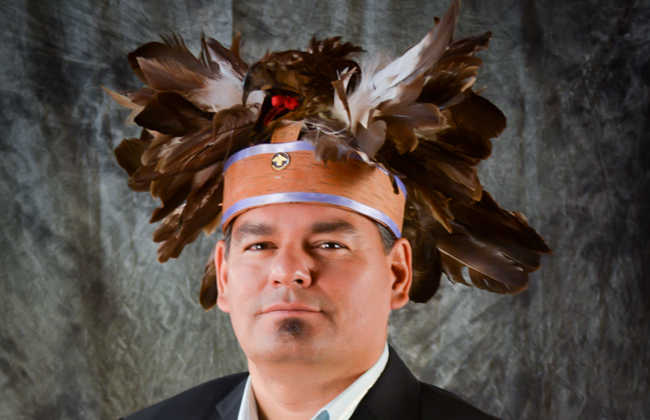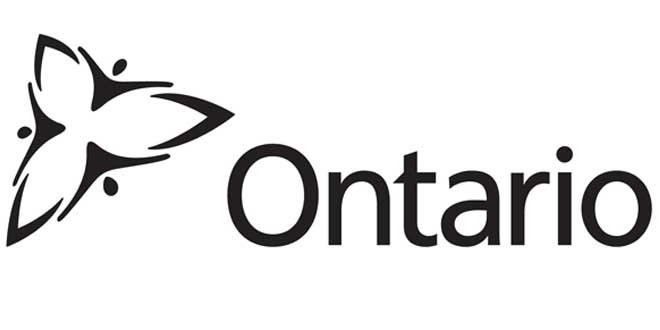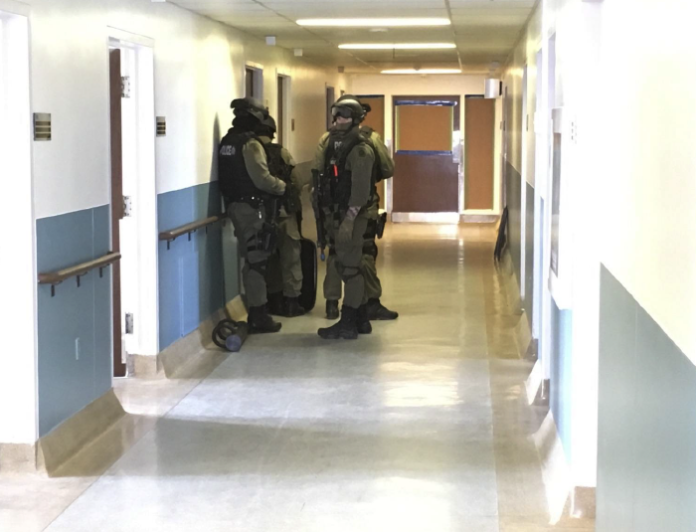TORONTO, (May 30, 2016) — Ontario Regional Chief Isadore Day on behalf of the Political Confederacy and the Chiefs of Ontario issued this statement in the Ontario legislature today regarding the Ontario’s Statement of Reconciliation:
“Today, we journey together toward the Restoration of the rights originally recognized through sacred and binding Treaties with our Ancestors; and Reparation of lives of First Nation People damaged by Indian Residential Schools in Ontario.
We are here today on the traditional land of the Mississaugas of New Credit. This is a land walked upon and shared by so many Peoples from so many Indigenous Nations. We are the Anishinabek, Mushkegowuk, Onkwehonwe, and Lenape — the First Peoples of Turtle Island. This is our land — Ontario – land of blue waters.
We stand here today in the presence of the Spirits of our ancestors. In the presence of the Spirits of those leaders who signed the Treaty of Niagara in 1764; the Lake Superior and Lake Huron Treaties, the Williams Treaties, and the numbered Treaties; and in the presence of the Chiefs and Grand Chiefs who are descendants, and who represent this unbroken line connecting our Peoples to this present day relationship with the originating colonists – the Ontario Citizen today; and the settler kin of the Métis People.
We also stand in the presence of the troubled Spirits of our children, our youth, our sisters, mothers and grandmothers. Far too many have taken their lives – or have had their lives stolen. Far too many continue to suffer under poverty and despair not of their choosing – not of their wish or desire but as a sustained result of colonization deception of Peace and Friendship – unfortunately here in the province of Ontario.
As we stand in the presence of our Residential School survivors; we are reminded of a system meant to kill the Indian in the child. Not only have they suffered unspeakable abuse, their children and grandchildren have also suffered. How terribly sad, that this horrible legacy continues to impact our present generations, as so evident in the current suicide crisis of our children and youth. The vast majority of us as First Nation People across this land can speak of the direct impacts of this dark legacy – yes many of us have lived in the direct darkness and shadows of the evil that was so evident in so many of those schools.
The Indian Act of 1876 formalized the chains of oppression that we as First Nations Peoples continue to struggle to break free of; to this day. Combined colonialism – the Indian Act, along with the full implementation of the Residential School system – would become the malevolent scheme towards the destruction of our humanity.
This colonial force created such a high level of dysfunction and despair for so many generational decades, that its effects continue to impact the wellbeing of our families to this day through intergenerational trauma – a communal post trauma experienced in all First Nations in this province.
We also continue to be subject to policy and legislation that shape and control our lives; the progenies of the Indian Act system – unjustified and unjust jurisdiction against Our People and Our Lands.
The deepness of poverty that continues to kill Our People, this is not right – this has never been right – in a land as rich as Ontario. Our Ancestors did not envision these present horrors when they agreed to share the wealth of the land, – this goes against the original treaties of Peace and Friendship.
Our Peoples were never included in the discussions when vast tracts of our lands, here in Ontario, were illegally sold to immigrants from Europe in order to pay off debts from the War of 1812. If Our Peoples had not been allies in that war, Ontario and Canada, may never have existed. Our Peoples were never part of the discussions when Ontario, Quebec, New Brunswick, and Nova Scotia formed Confederation in 1867 – yet today we are subject to a division of powers and not formally welcomed by the federal family on this land – oddly, like an uninvited guest on our own land.
Before 1867, the marginalization of Indigenous Peoples had already begun through discriminatory and inequitable measures. We were already being forced into small reserves. We had begun to lose our rights, traditions, cultures, languages and sustenance to life. We began to lose our children to residential schools. We had become prisoners in our own lands. Canada’s Apartheid – it is real and it is the true subject of Reconciliation in the province today – Premier, members of the Ontario legislature – this is your time to cast a light on a dark and painful history. Let the healing begin!
The Spirit of change is upon us. The Highest Courts of this land tell us the Constitution protects Indigenous ways of life, our culture and our connection to our lands – the Constitution can now affirm and begin to formally recognize, through Reconciliation, Inherent and Treaty rights – never relinquished as the pre-contact and original Indigenous Peoples of this land.
The Political Accord being implemented in Ontario; the commitments of both the Federal and Provincial governments that follows the Truth and Reconciliation Commission’s Calls to Action; and the full adoption of the United Nations Declaration on the Rights of Indigenous Peoples. These are all powerful signals of a new relationship based upon equality, restitution, and recognizing our sovereignty as Nations.
Today, we will walk together on a path towards building happy, healthy First Nation communities. We will end the scourge of suicide. We will end the epidemic of missing and murder Indigenous women and girls. We will return Our Children to their Families.
We will work together to build economies – in the Spirit and Intent of the Treaties. We will work together to combat climate change. We will work together to return Ontario to the beauty and bounty that first attracted the settlers to our lands. We will strengthen Indigenous Peoples’ connection to our Mother, Mother Earth.
In conclusion – we must turn our efforts and seek the full involvement and inclusion of our Indian Residential School survivors in all aspects of moving forward; for it is they that have carried the full burden and have experienced the darkness of this history. They must never again feel left out, alone, or abandoned – this process and these investments belong to them.
Today, we move closer to fulfilling the original intent of the Treaties envisioned by our Ancestors, Premier, and all those present in this legislation house, today, we reclaim our rightful place in Ontario. May the Creator bless all of you; and may Our Ancestors feel the warmth of reconciliation in this new era of healing.
First Nation Leader Quotes:
Anishinabek Grand Council Chief Madahbee:
“I welcome the comments and commitments by the Ontario government to work with Indigenous partners to address the legacy of the Residential schools by addressing the recommendations of the Truth and Reconciliation Commission.
I look forward to working in a true partnership with Premier Wynne and her government to make the 94 recommendations a reality and he reminds participants today that the critical parts of the Truth and Reconciliation Commission Report are the Calls to Action.
I remind participants that there have been many studies of our peoples and issues over the decades – the 1983 Penner Report on Self Government, the 1992 Charlottetown Accord, the 1996 Report of the Royal Commission on Aboriginal Issues are all examples of good work but much remains to be done.
Most of the recommendations still sit on shelves. I urge everyone to move quickly to action and to work to identify immediate priorities, set critical paths that we can advance our issues and take action to implement them. I look forward to the challenge of working together to implement the Truth and Reconciliation Commission Calls to Action. I also remind participants that there are other processes to help us achieve our goals as well, including Restitution, Restoration and Reclamation.”
Chief Ava Hill, Six Nations of the Grand River:
“The Province of Ontario is leading the way in this country with this Statement of Reconciliation. It has set the bar for the rest of the Provinces, and they are to be commended for the commitments they have made with respect to the Calls to Action of the Truth and Reconciliation Commission.
On behalf of Six Nations Elected Council, I would also like to acknowledge and thank all of those residential school survivors who had the courage to tell their stories. Without them, there would not have been any Truth and Reconciliation Commission. We also need to thank them for ensuring that all of our issues are now foremost in the minds of the Federal, and Provincial Governments. We owe a debt of gratitude to all the residential school survivors.”





